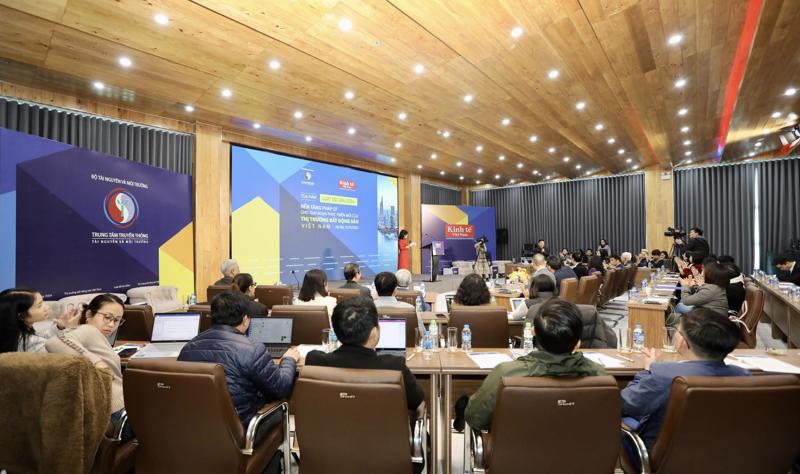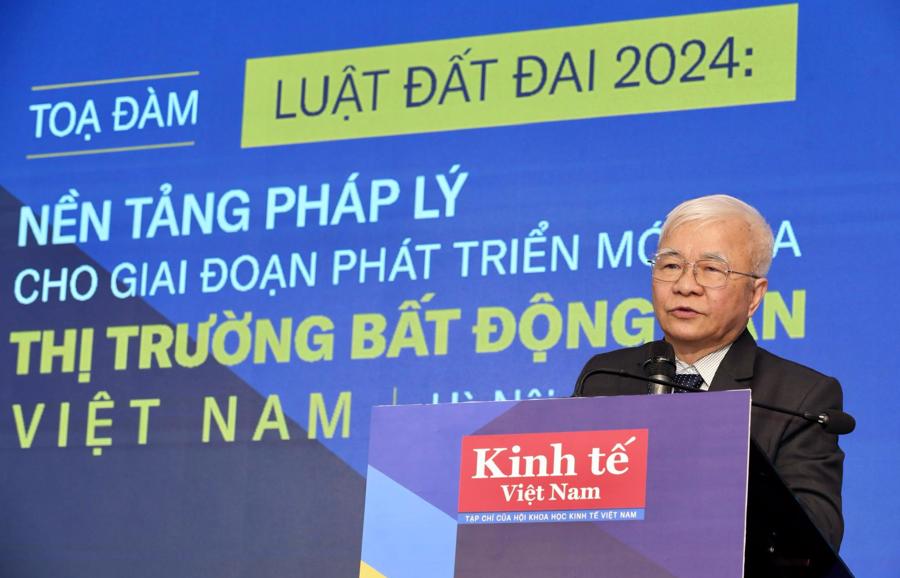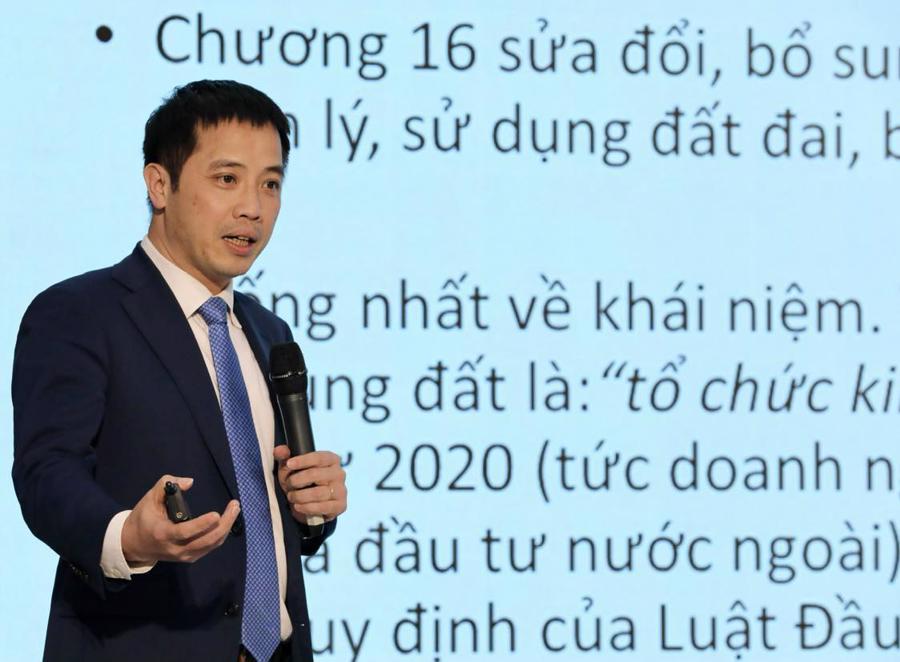Revised Land Law creates motivation to boost recovery of real estate market
VnEconomy seminar looks at the effect the recently-issued Land Law (amended) will have on Vietnam’s real estate market.

Investors, real estate developers, and businesses have expressed their expectations of the positive effect of the revised Land Law, creating motivation to promote market recovery and a legal foundation for Vietnam’s real estate market to develop healthily and sustainably, Dr. Chu Van Lam, Editor-in-Chief of Tap chi Kinh te Viet Nam / VnEconomy told the “Land Law 2024: Legal Foundation for the New Development Phase of the Real Estate Market” seminar held by Tap chi kinh te Viet Nam / VnEconomy in cooperation with the Center for Natural Resources and Environment Communications at the Ministry of Natural Resources and Environment (MoNRE) on January 31.

The revised Land Law was recently passed by the 15th National Assembly (NA) at its 5th extra-ordinary session, and has received special attention from the people, all levels, sectors, and localities, and especially the business community. This is an important law, with special meaning and importance and profound effects on all aspects of socio-economic life as well as the rights of businesses and people.
The approval of the Land Law (amended) at the session, along with the Law on Housing (amended) and the Law on Real Estate Business (amended) passed earlier, in November 2023, will all take effect simultaneously from January 1, 2025 and meet requirements in synchronously perfecting policies and laws on land management and use in accordance with the institutions for developing a socialist-oriented market economy.
Land resources will be managed, exploited, and used economically and sustainably and with the highest efficiency; meet the requirements of promoting industrialization, modernization, equity, and social stability; ensure national defense and security; guarantee environmental protection and adaptation to climate change; and create motivation for the country to become a developed country with high incomes.
Mr. Le Van Binh, Deputy Director of the Land Department at MoNRE, told the seminar that the revised Land Law is expected to resolve legal problems to effectively exploit land resources; remove difficulties facing businesses and projects; and contribute to helping the real estate market develop in a transparent and sustainable direction.

Mr. Binh noted that the provisions of the Law have an impact on the real estate market in terms of planning and land use plans; recovery; compensation, support, and resettlement when the State recovers land; land allocation, land lease, and permission to change land use purposes; land registration, the issuance of land use rights certificates, and the ownership of assets attached to land; finance for land and land prices; the rights and obligations of land users; and promoting decentralization in the State management of land.
Meanwhile, Mr. Phan Duc Hieu, Member of the NA Economic Committee, pointed out five groups of changes in the revised Land Law, including protecting the rights and legitimate interests of land users; improving land use efficiency; land access; land finance policy; and the effectiveness and efficiency of State management. In his address to the seminar, he focused on clarifying new points in the revised Law on market-oriented, transparent, and fair access to land.

Specifically, the Law clearly stipulates land recovery - transfer agreement; auction - bidding; bidding and transfer, and leasing through bidding; auction and land handover when auctions fail; and land recovery due to delays in project implementation.
From a business perspective, Mr. Dau Anh Tuan, Deputy Secretary-General and Director of the Legal Department at the Vietnam Chamber of Commerce and Industry (VCCI), said the Land Law is complex and balances many different interests.
He pointed out that the revised Law removes overlaps between legal documents. The process of drafting the Law has been reviewed with the Law on Housing and Law on Real Estate Business, which all take effect together. Chapter 16 amends and supplements a number of articles of eight laws with regulations relating to land management and use, and repeals one resolution from the NA relating to the Land Law. The revised Law has unity in concept. For example, the provisions of the Land Law 2024 are consistent and synchronized with the provisions of the Law on Investment 2020 on the concept of economic organizations with foreign investment capital.

The revised Land Law also has a clear hierarchy of authority, with clearer regulations on land recovery. Mr. Tuan also believes that the revised Law will promote transactions. “However, businesses are not completely satisfied with the Law,” he added.
Dr. Lam said that the Land Law is also directly related to 22 Codes and other laws, so the scale of impact is significant. “The government spent a lot of time collecting opinions and drafting the law,” he went on. “However, policy makers will need to draft many decrees and circulars relating to the Law. It is expected that about eight decrees and a number of circulars will need to be amended.”
The seminar was attended by representatives from specialized agencies at the NA, representatives of the Land Law drafting unit at MoNRE, and many legal experts and economists in the field of real estate.
The discussions and suggestions on subjects directly related to law enforcement as well as the analytical opinions of experts will be extremely important for authorities in the process of developing decrees and circulars guiding the implementation of the Law, to bring it into life in a practical and effective way.







